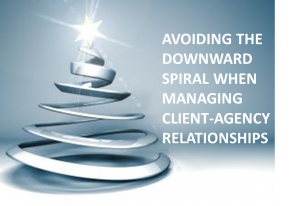Strengthening the agency-marketer relationship
Why client servicing staff should add value, show respect and be leaders every step of the way.
What does it take to keep a marketer-agency relationship moving smoothly?
What kind of reflexes should agency clients servicing staff develop? How does an agency bring the client relationship back on track after an incident has rendered the marketer frustrated, untrusting or simply insecure with the agency?
Here are some of the tactics that have worked for me and my teams.
- Add value at every step: Look for the opportunity to demonstrate your knowledge and pro-activeness in every situation. At times client service “gets lost” between the creative team and the marketer. Find your place by demonstrating your value to the client, as well as internally within your agency.
- Learn to distinguish between what is and what is not your client’s problem: Certain internal understaffing or work overload issues should be managed internally and are not necessarily issues to be shared with your client.
- Lead the relationship: Agency staff are the experts and should be leading the process. Tell the client what you need ahead of time. When a campaign doesn’t perform, don’t blame it on the fact that the marketer submitted a bad brief, or no brief at all. Give clear direction before-hand. You are surrounded by experts so use the resources around you. Look good and make your team look good.
- Be perceived as in control even if you don’t always feel it: A marketer going over your head and calling your supervisor to discuss an issue that is in your court means you are not in control.
- Put your client first: Back from lunch, 14 voicemails, numerous emails. Who gets called back first? Your client. Never leave your client wondering. This causes frustration and insecurity.
- Learn to appreciate the marketer’s perspective: Be one step ahead of the client. Pu yourself in their shoes. The key to good communication is understanding what your client wants, and not simply executing their requests.
- Don’t be intimidated by your client: They will respect you for delivering “bad news” in a professional way. Make the dreaded call before your client calls back…yet again. F the marketer has to wonder what’s going on, that means frustration and loss of confidence.
- Make your client your partner: In a big agency environment, marketers at times become intimidated by the structure and feel that they have a small voice. You are the client’s ally. They are your partner and should be kept informed every step of the way. Bad news, such as a campaign that is being aired substantially late should never come as a surprise, because your client has been a partner in the process.
- Avoid contributing to the “small client” complex: Never give a marketer the impression that there’s a more important agency client with priority.
- Remember that in the eyes of your client you are part of a team: You are working for an organization that has a history with your client. The “I’m new so I don’t know” or “I didn’t work on that campaign” are not good answers. It’s not (always) the client’s problem that there has been a changeover in staff. Find as many answers as you can internally, before asking the marketer questions for which you may already have the answers at your fingertips.
Add honesty, respect and professionalism to the above suggestions: The result will be a relationship where clients gain confidence in their agencies and hence, are open to being challenged. Marketers who feel that they are being heard are more likely to listen to their agency.
Professionalism leads to better relations
Newsletter
Sign up to our newsletter.











